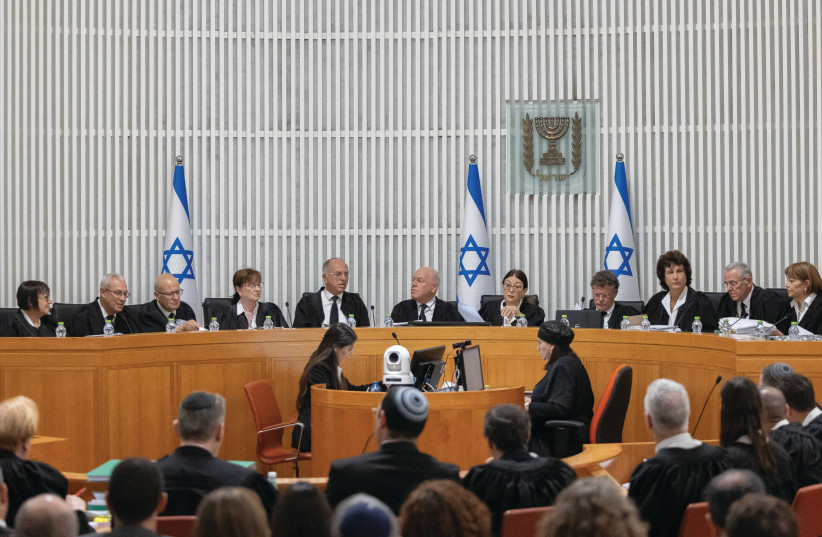Justice Minister Yariv Levin will not hold a vote to appoint a permanent chief justice at a meeting of the Judicial Selection Committee on Thursday, a spokesperson for Levin confirmed on Monday.
The decision apparently violates a High Court of Justice ruling issued September 8, according to which Levin was required to “convene the committee for the purpose of electing a chief justice.”
The mechanism to appoint the chief justice has been a bone of contention between Levin and the judicial system. Former chief justice Esther Hayut retired in October 2023, and former justice Uzi Vogelman and Justice Isaac Amit served as interim chief justices since then.
Traditionally, the position is filled by the longest-serving member of the bench, currently Amit. Levin, however, prefers the conservative Justice Yosef Elron and has argued that this “seniority” method is not statutory and should not always apply.
Levin, therefore, refrained from convening the committee to prevent Amit from being elected, as Amit likely enjoys a majority in the committee.

However, in response to a petition arguing that Levin had no authority to continue delaying the vote for the position, the High Court in September gave Levin 14 days to announce the candidates and an additional 45 days to convene the committee. Thursday’s meeting is the result of the ruling.
Levin saw the ruling as encroaching on his authority and encouraged citizens to file reservations against Amit. He intends to debate these reservations on Thursday without holding a vote. No other meeting is currently scheduled after Thursday, so it is unclear when the vote will be held.
'Softened' bar bill version advanced
In a related development, the Knesset Constitution Committee advanced on Monday a “softened” version of a bill proposal by Likud MK Hanoch Milwidsky that would alter the budget of the Israel Bar Association by removing the authority to set membership fees from the association itself and giving it to government-appointed representatives.
Milwidsky, committee chairman MK Simcha Rothman, and other representatives of the coalition have accused the IBA of using its budget for purposes that are not part of the IBA’s statutory roles and have argued that the IBA was taking advantage of its status for political purposes.
However, members of the IBA and the opposition have argued that the bill was an attempt to exact revenge on the IBA by harming its independent ability to set its budget.
The IBA has two representatives on the Judicial Selection Committee, and the revenge, according to IBA chairman Adv. Amit Becher is due to their support of Amit as chief justice.
The bill’s initial version said the justice minister would have the power to set the membership fees. According to the “softened” version, the IBA would set the membership fees, but they would need to be approved by the IBA’s ombudsman.
In addition, the “softened” version includes a clause whereby the IBA may only use the budget from the membership fees for specific purposes necessary to carry out the IBA’s basic functions.
Representatives of the IBA, led by Becher, argued that the “softened” version would still harm the IBA since many of the actions that were not considered “necessary” were still imperative to maintain high professional levels of lawyers, including professional conferences, IBA committees that formulate its opinions on legislative initiatives, and other functions.
The debate became heated at times, as family members of hostages being held in Gaza, alongside members of the IBA and MKs from the opposition, criticized Rothman for insisting on debating the controversial bill for what they claimed were political purposes instead of focusing on the hostages and other more important matters.
